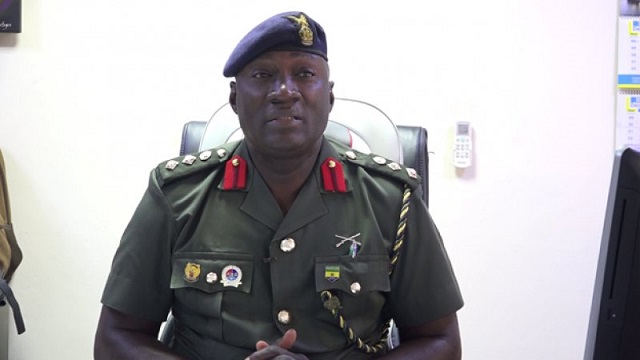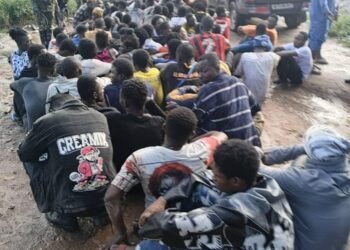Economic, social, political, or environmental factors are among several motives for which a person may want to migrate from one place to another. Despite the numerous reasons, the one which stands out, especially among the youth, is the economic rationale. It is very common to see most people especially the youth wanting to migrate to seek greener pastures elsewhere.
Global estimates show that the number of international migrants rose from 150 million in 2000 (2.8% of the world population) to 272 million in 2020 (3.5% of the world population). Similarly, International remittances, have grown from an estimated $126 billion in 2000 to $689 billion in 2020, underscoring the salience of international migration as a driver of development, according to the World Migration Report 2020.
According to the 2019 Migration profile for Ghana, 970,625 Ghanaians were living outside Ghana in 2019 with Male emigrants outnumbering their female counterparts by 6 percent. According to the Ghana Immigration Service, a total of 914,984 persons departed Ghana in 2018 with states in the Gulf Region and the Middle East been relatively popular destinations for Ghanaian emigrants.
Whilst migration has several benefits, the major concern is that, most of the migrants often use illegal or unapproved routes, posing serious dangers to their lives.
The 2019 Recruitment Cost Pilot Survey (RCPS) conducted by the Ghana Statistical Service, showed that almost one-quarter (24.7%) of the migrants went through unapproved means or entry ports to their destinations.
Most of these people often hide in a ship, airplane, or other vehicles to make a journey secretly or without paying (stowaway).
Every year, several instances of stowaways occur in Ghana, some of which go undetected. Per the law, individuals nabbed in the act of stowaways are to be handed over to the Immigration Service who then hand them over to the Ghana Police, for prosecution.
Due to the recurrent nature of this ugly phenomenon, the Tema Port Security Manager, Colonel William Kwabiah, has called for harsher punishments for persons who engage in stowaways to serve as a deterrent to others.

“Once you do not get a punishment that is punitive enough that would serve as a deterrent, we would continue to have young men who are daring to try and go on this adventure.
“Currently, they may be asked to pay probably GH¢500 or be sent to jail for a month or two. Normally they would get people to pay this amount, and this amount is not deterrent enough,” he said.
His warning came after a recent stowaway incident that occurred on December 8, 2020, involving two suspects Aaron Abeiku Taylor, 28 years, and Emmanuel Bodor, 19 years.
Around October last year, a trio of Ghanaian stowaways were repatriated after their voyage was cut short off the coast of Namibia.
The stowaways, Emmanuel Agyei, 45 years old; Akesse Francis Alan, 46 years old; and Samuel Yalley, 45 years old, all from Elmina in the central region of Ghana, said they boarded the Hong Kong-flagged container ship, Kota Lumba, in the port of Tema, Ghana, using a bamboo ladder on the blind side of the ship.
In January 2020, three Nigerians were arrested at the Tema Port after they failed in their attempt to stowaway to Europe. Unfortunately for them, the vessel was only heading towards Ghana to discharge some goods. The phenomenon is therefore not only a preserve for Ghanaians but a common problem among the youth in Africa trying to move to Europe to enjoy a good quality of life, which to many, never materialize even if it does exist.

It can be recalled that in 2018, Mr. Stevens Siaka-Anane, Deputy Harbour Master in-charge of operations, stated that stowaways normally hide in containers as these are rarely scanned, the basis on which officials of Abidjan port in Cote d’Ivoire always blame Ghana for letting people to stowaway as, according to them, whenever they arrested such persons, they turn out to be Ghanaians.
In 1992, a Ghanaian, Kingsley Ofosu was in the news when he survived the slaughter of a group of African stowaways by the Crew of the Bahamian-flagged cargo ship, MC Ruby. Ofosu was the only survivor as 8 of the men on board the cargo including his brother were killed.
Who knows how many such deaths occur each year, with no survivor to tell the story as Ofosu was fortunate to have done?
The country losses a lot of human capital through illegal migration each year. Several instances of stowaways exist in Ghana, but small as the numbers may be, it remains a very serious issue that requires urgent attention.
To address this pressing issue, there is a need to create more decent jobs to limit the desire of the youth to try to migrate through unapproved routes. Policies such as the Planting for Food & Jobs and the 1D1F initiatives hold some promises in this regard, if well managed.
Secondly, it calls for massive public education by the National Commission for Civic Education (NCCE) on the dangers associated with such an adventure. Apart from death, several others end up being tortured and enslaved, the majority who may never find their way back home.
The Port and Harbours Authority should also intensify their security and vigilance at the port to ensure that suspects are arrested and prosecuted to serve as a deterrent to others.
Finally, the youth must be made to re-visit the old cliché that says ‘hard work pays’ so that they can work harder to achieve their dreams rather than looking for quick means of getting rich overnight.





















